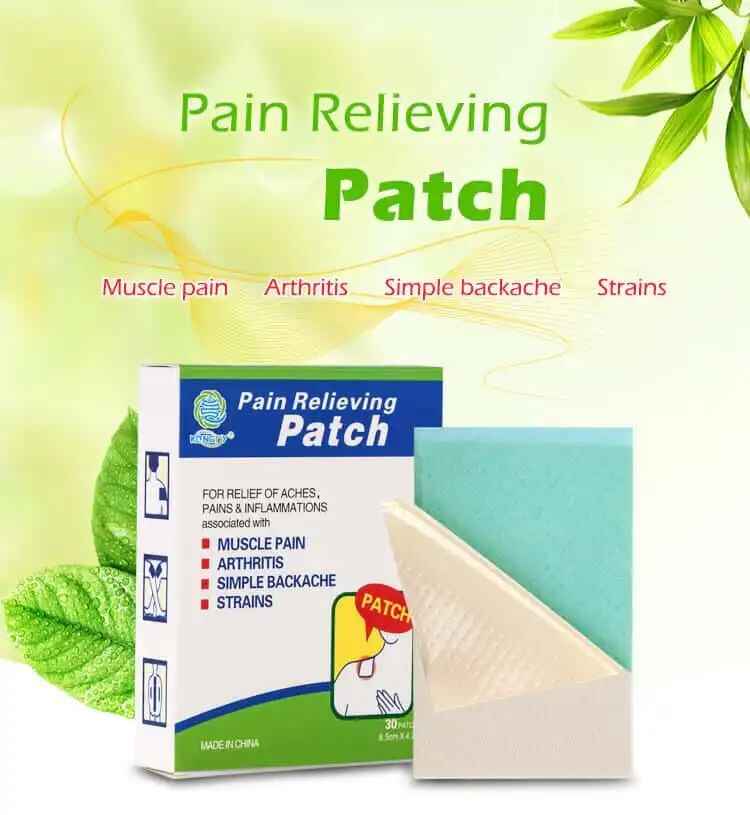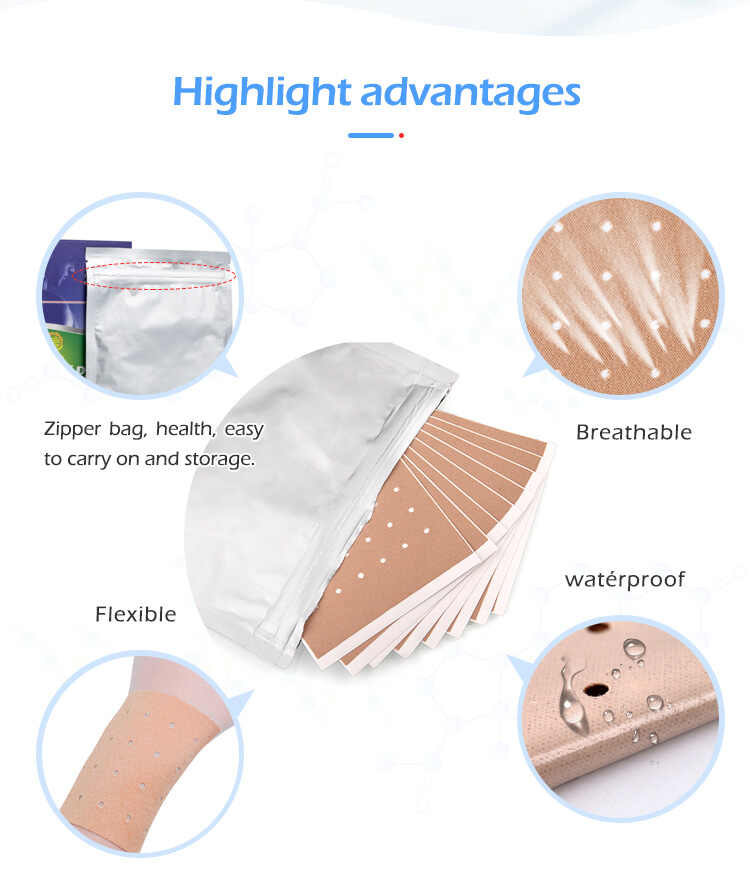Do Custom Sports Pain Patches Require Special QC Steps? A Deep Dive for Brands and Buyers
In the dynamic and competitive market of pain relief products, Custom Sports Pain Patches are gaining significant attention. Designed for athletes and active individuals, these patches offer targeted relief and are often marketed under various private labels. But with customization comes the need for rigorous quality control (QC). So, do Custom Sports Pain Patches require special QC steps? The answer is a resounding yes.
In this article, we’ll explore the specific quality control procedures that differentiate Custom Sports Pain Patches from generic ones, why these steps are critical, and what Sports Pain Patches Manufacturers, OEMs, and Suppliers must do to ensure consistent product safety, efficacy, and compliance.

Why Quality Control Matters for Custom Sports Pain Patches
The sports pain relief patch market is booming, thanks to a growing demand for topical, non-invasive pain management solutions. Whether developed by a Sports Pain Patches OEM or created under a Private Label Sports Pain Patches arrangement, these products are expected to deliver immediate relief with high safety standards.
However, customization adds layers of complexity:
Custom ingredients (e.g., menthol, capsaicin, CBD)
Variable adhesive strength
Customized shapes and packaging
Brand-specific compliance and labeling
These variables mean that standard QC processes aren't always sufficient. Let’s now look at the special QC steps necessary for Custom Sports Pain Patches.
Special QC Steps for Custom Sports Pain Patches
1. Raw Material Testing and Validation
Before production, every batch of raw material—especially active ingredients—must undergo thorough testing.
Ingredient potency and purity: Ensures consistency in therapeutic effects.
Allergen screening: Protects users from unexpected skin reactions.
Supplier audits: A critical role for the Sports Pain Patches Manufacturer to verify raw material sources.
Why this matters: Custom formulations often introduce new or less-tested ingredients. Without validation, these could compromise safety.
2. Adhesive Strength and Skin Compatibility Testing
Custom Sports Pain Patches may require unique adhesive formulas to stay secure during intense physical activity.
Patch adhesion testing: Simulates different athletic conditions (sweat, motion, temperature).
Dermatological testing: Essential for custom adhesives, especially with long wear times.
OEMs and Sports Pain Patches Suppliers must ensure adhesives don't cause irritation, even when worn under compression garments or sports tape.
3. Active Ingredient Release Rate Testing
This is especially critical for Custom Sports Pain Patches that use time-release technology.
Dissolution studies: Measure how active ingredients are released over time.
Efficacy assurance: Ensures the patch performs according to claims (e.g., "8-hour relief").
A reputable Sports Pain Patches OEM will integrate this into their QC protocol.
4. Customized Shape and Packaging Inspection
Unique shapes can be a strong branding element but can affect product performance.
Dimensional accuracy checks: Ensures that every patch fits the target area (e.g., shoulder, knee).
Packaging integrity tests: Protects the patch from contamination or degradation.
Especially for Private Label Sports Pain Patches, packaging must also align with the branding strategy without compromising product quality.
5. Stability and Shelf Life Testing
Custom patches often introduce new interactions between active ingredients, adhesives, and packaging materials.
Accelerated aging tests: Predict shelf life.
Environmental exposure tests: Ensure stability across temperatures and humidity levels.
These are vital for Sports Pain Patches Suppliers exporting to varied global climates.
6. Microbial Contamination Control
Even though pain patches are not typically classified as sterile products, Custom Sports Pain Patches with natural or herbal ingredients may be more prone to microbial growth.
Microbial load testing: Ensures cleanliness.
Preservative efficacy testing (PET): Confirms any preservatives used are effective over time.
An OEM specializing in Herbal or Custom Sports Pain Patches must prioritize this step.
7. Batch-to-Batch Consistency Audits
Customization makes consistency more difficult to maintain.
Weight and thickness checks
Color and odor uniformity
Label accuracy audits
These QC elements are essential for building consumer trust in Private Label Sports Pain Patches.
Regulatory Compliance and Labeling
Customized products must comply with local and international standards such as:
FDA (U.S.)
CE (EU)
GMP and ISO 13485
A reliable Sports Pain Patches Manufacturer will integrate regulatory reviews into their QC processes, ensuring accurate claims, proper dosage instructions, and approved ingredient disclosures.
Role of OEMs and Suppliers in Quality Assurance
Working with an experienced Sports Pain Patches OEM gives brands access to specialized QC systems. These include:
In-house labs for chemical analysis
Third-party certification support
End-to-end traceability systems
Furthermore, a reputable Sports Pain Patches Supplier will offer transparent documentation, allowing brands to perform their own quality audits if necessary.
Final Thoughts
Yes, Custom Sports Pain Patches require special QC steps beyond traditional mass-produced patches. Customization in formulation, design, packaging, and branding introduces new variables that, if not properly controlled, can affect the product's safety, effectiveness, and reputation.
Choosing the right Sports Pain Patches Manufacturer, OEM, or Supplier is essential to ensuring that your customized pain relief solutions meet the highest standards in quality and compliance. This isn’t just about avoiding liability—it’s about building a brand that customers trust.
Related Questions and Answers
Q1: What is the main difference in QC between generic and custom Sports Pain Patches?
A1: Custom patches require additional testing for ingredient interaction, adhesion, and branding consistency, while generic patches follow standard protocols.
Q2: How do Sports Pain Patches OEMs ensure product consistency?
A2: Through rigorous batch-to-batch testing, ingredient traceability, and automated manufacturing processes.
Q3: Are Private Label Sports Pain Patches safe for sensitive skin?
A3: Yes, if proper dermatological and allergen testing is included in QC steps.
Q4: Can I request third-party testing from a Sports Pain Patches Supplier?
A4: Absolutely. Reputable suppliers often provide third-party lab reports for transparency.
Q5: How important is regulatory compliance for Custom Sports Pain Patches?
A5: Critical. Non-compliance can lead to recalls, legal issues, and damage to brand reputation.
If you're planning to launch a Custom Sports Pain Patch line, prioritize finding a Sports Pain Patches Manufacturer or OEM that integrates comprehensive, customized QC steps. Your brand's success—and your customers' safety—depends on it.






